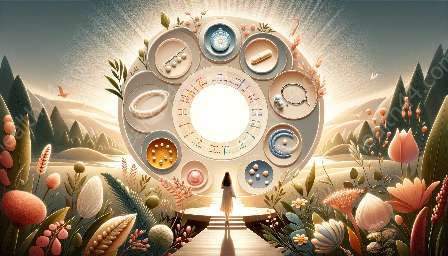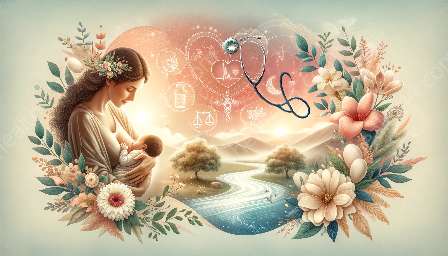Childbirth is a miraculous and natural process that profoundly impacts reproductive and overall health. It is a topic that holds immense significance for individuals and families, as it marks the beginning of a new life and a transformative journey into parenthood. In this comprehensive guide, we will delve into the stages of labor, delivery options, postpartum care, and the broader implications of childbirth on reproductive health and general well-being.
The Miracle of Birth
Childbirth, often referred to as labor and delivery, is the culmination of nine months of pregnancy and the climax of the gestational period. It is a miraculous event that brings a new human being into the world, filled with profound emotions, challenges, and triumphs. From the onset of pregnancy to the moment of birth, the female body undergoes a remarkable series of physiological changes to accommodate and nurture the growing fetus. As the due date approaches, the expectant mother and her support system eagerly anticipate the arrival of the new family member.
Stages of Labor
The process of childbirth unfolds through several distinct stages, each marked by specific physiological and emotional milestones. The first stage consists of early labor, active labor, and transition, during which contractions help the cervix dilate and efface. The second stage involves pushing and the actual birth of the baby, while the third stage culminates in the delivery of the placenta. This intricate process is guided by the incredible coordination of hormonal changes, uterine contractions, and maternal instincts.
Delivery Options
Throughout history, women have delivered babies in various settings and under different circumstances. In modern times, expectant mothers have the option to choose between a hospital birth, a birthing center, or a home birth, each with its unique benefits and considerations. Medical advancements have also made interventions such as epidurals, inductions, and cesarean sections more accessible, providing women with a range of choices to tailor their childbirth experience according to their preferences and medical needs.
Prenatal and Postpartum Care
Reproductive health encompasses the care and support that women receive before, during, and after childbirth. Prenatal care involves regular check-ups, screenings, and education aimed at promoting the health of the mother and the developing baby. Postpartum care addresses the physical and emotional well-being of new mothers and their infants, as they navigate the recovery process and the challenges of early parenthood. Access to comprehensive healthcare services is crucial for ensuring positive birth outcomes and long-term maternal and child health.
Impact on Reproductive and Overall Health
Childbirth not only represents the beginning of a new life but also has profound implications for a woman’s reproductive health and overall well-being. The experience of childbirth can influence fertility, pelvic floor function, and hormonal balance, shaping a woman's health in the years to come. Moreover, the emotional and psychological impact of giving birth and transitioning into motherhood can have long-lasting effects on mental health, relationships, and family dynamics.
Educational and Supportive Resources
For individuals and families navigating the journey of childbirth, access to reliable information, supportive networks, and evidence-based care can make a significant difference in their experience and outcomes. From childbirth education classes and lactation support to mental health services and parent groups, the availability of resources plays a pivotal role in empowering women and families to make informed decisions and thrive during the perinatal period.
In conclusion, childbirth is a rich and multifaceted experience that extends beyond the biological process of labor and delivery. It is intricately linked to reproductive health, maternal well-being, and the dynamics of family life. By understanding the various aspects of childbirth and the impact it has on individuals and society, we can cultivate a culture of support, respect, and informed decision-making that nurtures the health and vitality of mothers, babies, and families.























